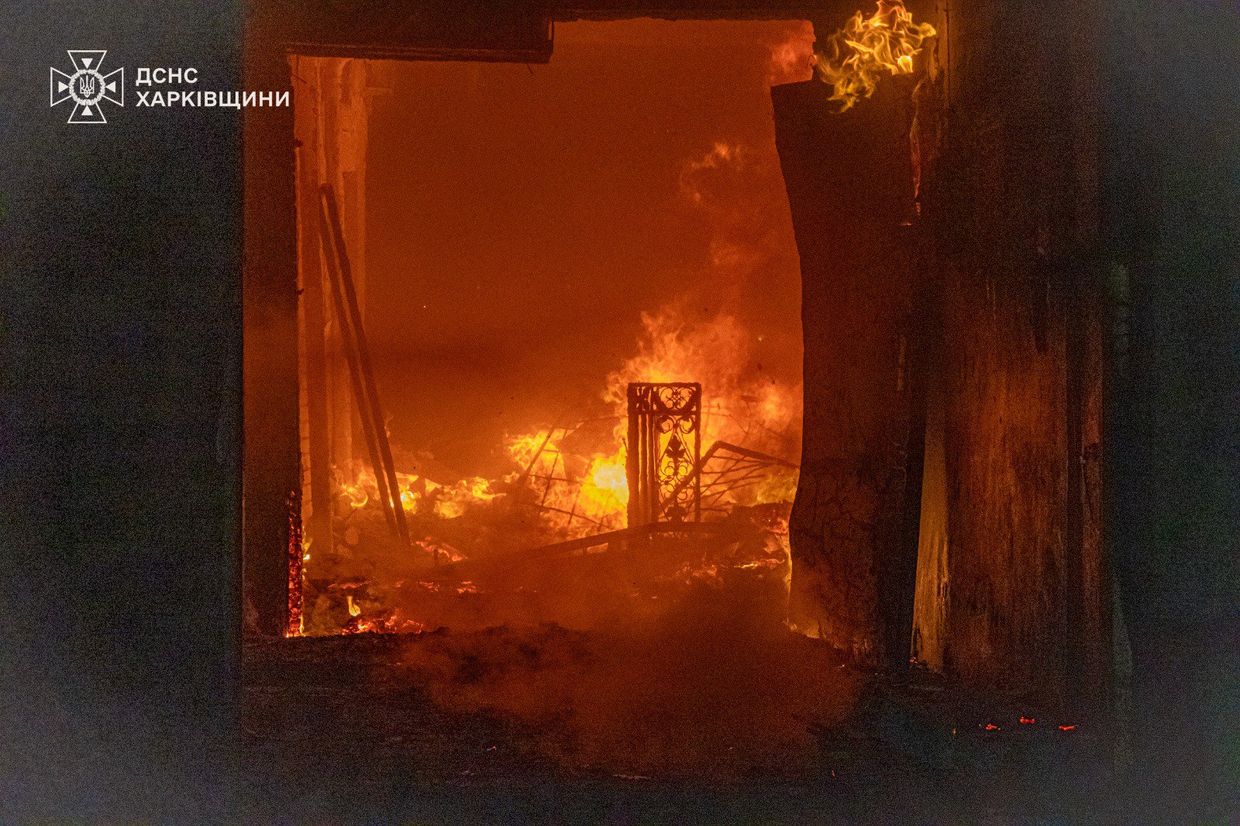For over 20 years, best friends Nikki Boyer and Molly Kochan shared everything with one another. When Kochan was first diagnosed with breast cancer in her early 30s, Boyer was one of the few people she spoke frankly about her illness with. But when her cancer returned and became terminal, Kochan really started to open up. She went through a personal sexual revolution, which became the subject of her and Boyer’s podcast Dying for Sex. When Kochan died in 2019 at age 45, Boyer was by her side.
Now, six years after Kochan’s death, the friends’ story is getting new life and an even bigger audience in the Hulu series Dying for Sex, which debuts Friday. For Boyer, their podcast — which was released by Wondery in 2020 — and now the show have kept her friendship with Kochan present. “The weird thing is, I don’t think I’ve actually felt the loss because I’ve been living with her and with her voice for so many years,” Boyer tells Yahoo Life. “I have a feeling that when this show is released into the world, it will be a final letting go of her and I’m preparing for that. But she’s just so in me, and so a part of me, that maybe I’ll always feel this way about her.”
Along with Kochan’s voice, Boyer carries with her lessons on the value of a true best friendship and holding one another close — even in the hardest moments. She shared what she’s learned with Yahoo Life.
1. Get open and stay open
Boyer and Kochan met in an acting class in Los Angeles. While Boyer knew immediately that she wanted to befriend the tall, striking woman who walked into the room, Kochan took a little convincing. But over the course of many car rides — offered by Boyer, accepted by Kochan — inside jokes and years in one another’s company, the two women became best friends.
The two were even together when Kochan met the man who would become her husband. There was little left unsaid between the two women. But, once they were each married, they didn’t really discuss their romantic relationships, which became quietly unhappy, says Boyer. “We were both in marriages that we [eventually] ended up not staying in,” she says. The women “doubled down” on their respective relationships and time ticked by. “It wasn’t that we were avoiding what was happening, but sometimes that’s just how it goes,” Boyer says. “You get married and when you stay in those relationships, you find acceptance.”
Jenny Slate, left, who plays Nikki Boyer in the show Dying for Sex, alongside Boyer, center, and Michelle Williams, who portrays Molly Kochan. (Kristina Bumphrey/Variety via Getty Images)
Kochan didn’t end her marriage for 15 years. When she found herself facing a diagnosis of stage IV breast cancer, she finally left her husband and began the sexual quest that would become the basis for Dying for Sex.
The two women didn’t discuss their marriages much. Now, Boyer wonders, would they have started new chapters of their lives sooner — before Kochan was terminal — if they’d just talked about their discontentments? “I think we really could have been there for each other if we had both gotten our heads out of our asses a little bit,” says Boyer. “But sometimes you’re only willing to meet other people as deeply as you’re willing to meet yourself.”
2. Don’t be afraid to go deeper
What Boyer and Kochan lost in frank conversations about their married sex lives, they made up for in spades during the final years of Kochan’s life and over the course of their podcast. “I think our friendship was the perfect safety net for sharing,” says Boyer. Putting their friendship at the center of the podcast provided it with “just the fun of two girlfriends talking about sex,” she explains. “But [Kochan] also knew there was a deeper underbelly, a deeper layer, to everything.”
I think our friendship was the perfect safety net for sharing.
Nikki BoyerThe two friends couldn’t help but laugh and relish in Kochan’s wry retellings of her exploits, whether they were silly, surprising or purely sexy. But, “we knew that the next question was going to be, ‘What was this about for you? What does this mean to you? Where did this come from?’” Boyer says. Friendship can create a safe space to talk about intimate subjects. And, sometimes, subjects like sex can create a more lighthearted way into harder conversations. Through their giggles and gasps at all the salacious stories, “I think the permission that we gave ourselves to go so deep into the sex [conversations] came from the safety of that depth and that friendship,” says Boyer.
3. Be messy, together
Kochan had always been unafraid to be imperfect in the eyes of her best friend. The closer she got to her own death, the more willing she was to let others see her flaws, and that gave Boyer “permission to be messy” while navigating her own trials and pains, she says.
Sometimes getting messy means acknowledging a conflict. Boyer says she and Kochan never had a true fight or falling-out, but they did reach a point when they needed a break from one another, after a trip to New York that taxed each of them in different ways. “There’s truth to caretaker fatigue,” says Boyer. After five days apart, the two women told one another how they’d been feeling, but “there was no blame, and I remember feeling like, ‘That’s one of the healthiest arguments I’ve ever had with anyone,’” says Boyer. Ultimately, laying out their real difficult feelings brought the friends closer. “A friendship is a pretty intense commitment that you make to each other,” says Boyer. “People come into your life for a reason, a season or a lifetime ... and if it’s a lifetime, I encourage people to ask, ‘Is your ego in the way? Could a conversation fix it?’”
4. No matter what, you still show up
Much of Dying for Sex (the podcast, at least) focuses on Kochan’s experiences with intimacy and cancer, plus Boyer’s supporting role. But, off mic, Boyer says that Kochan still showed up for her, even in the face of a terminal diagnosis. “Talking to Molly was like therapy,” Boyer says.
Talking to Molly was like therapy.
Nikki BoyerWhile her best friend was fighting cancer, Boyer was going through her own issues with infertility, including miscarriages. “She never used her cancer as like, ‘Well, I’m dying,’” Boyer says. “She was always really tuned in and emotionally available for what I needed. That bond kind of surpassed the confines of other relationships that I had had before.”
5. You can’t have the good without the bad
Of course, having some boundaries is important to maintaining a friendship too, even in the most dire of circumstances. During the last few months of her life, when Kochan was hospitalized, Boyer would spend hours a day there with her. Still, inevitably, when Boyer would get ready to leave, Kochan would pout and wish her friend would stay longer. “But I could always be really honest with her,” and take time for herself when she needed to, Boyer says.
The two women stuck it out for one another through thick and thin, and gave each other grace when they were tapped out. For Boyer and Kochan, a “warts and all” mentality was at the heart of their closeness. “You don’t get the intimacy and the immense joy and love without the flip side of the coin: the potential for unresolved or uncomfortable feelings,” Boyer says.
.png)
 German (DE)
German (DE)  English (US)
English (US)  Spanish (ES)
Spanish (ES)  French (FR)
French (FR)  Hindi (IN)
Hindi (IN)  Italian (IT)
Italian (IT)  Russian (RU)
Russian (RU) 




Comments